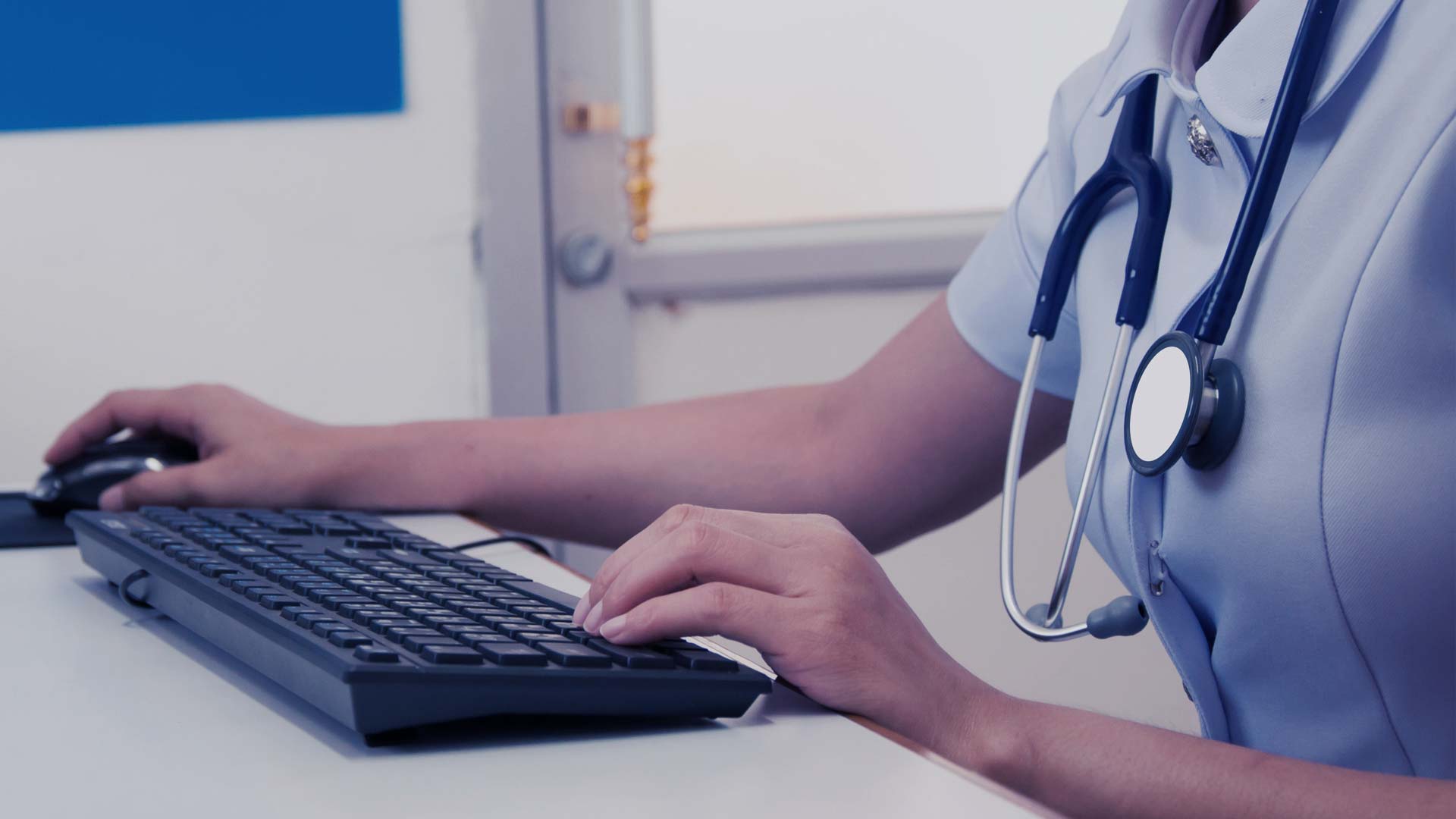It’s OK to admit it: In your nursing job, you hate electronic health records.
Well, maybe it’s more of a love-hate relationship, or at least tolerate-hate. You might see the benefits of EHR; but oh, the frustration of using computerized documentation! It can turn “screen” time into scream time.
You’re not alone in your EHR-induced irritation. Only a third (34%) of physicians say they’re satisfied with EHR systems, according to a survey by the American Medical Association. Doctors reported that it takes them three years on average to overcome EHR challenges, and the majority said the systems increased total operating costs (52%) or failed to reduce workload (72%).
Nurses are equally frustrated with electronic health records. Black Book Market Research conducted a survey of RNs’ attitudes toward inpatient EHR systems in 2014. The results showed few nurses had joined the computerized charting fan club. Among the survey’s findings:
- 92% of nurses reported being dissatisfied with hospital EHR systems.
- 94% of those surveyed said inpatient EHR systems had not improved communication between nurses and other clinicians, and 90% thought the systems actually negatively impacted communication between nurses and patients.
- 84% of nurses said EHR contributed to job dissatisfaction by disrupting their workflow and productivity.
Who’s to blame for such poor ratings? In the survey, 88% of nurses pegged hospital administrators for choosing EHR systems that don’t meet their needs. To be fair, many hospitals have faced the burden of meaningful use and other federal healthcare regulations that have propelled quick implementation of electronic health records. The result has sometimes been systems that satisfy the rules, but fail to take into account the requirements or satisfaction of patients and providers. A major pain point for nurses and physicians alike remains their lack of input into the development of these systems.
And being left out of the development loop isn’t the only exasperation for healthcare professionals. Many clinicians bemoan the time-suck of EHR, that is, the time they spend interacting with a computer screen at the expense of interaction with patients. Those time demands are what one physician calls “the medical equivalent of texting while driving” — with a less-than-full focus on patients being the inevitable casualty.
On the Plus Side
For nurses, it’s not all doom and gloom with EHR. Another survey, conducted in 2015 by the non-profit Healthcare Information and Management Systems Society (HIMSS) on behalf of the IT vendor Allscripts, found a majority of nurses see crucial benefits of electronic health records:
- 72% of respondents recognized that EHR contributed to improved patient safety and fewer medical errors.
- 73% of nurses surveyed reported EHR improves collaboration among clinicians within their organizations.
- 71% of nurses say they would not return to paper-and-pencil charting.
Even so, the day-to-day (or rather minute-by-minute) frustrations of operating often-clunky computerized documentation systems has caused many an otherwise well-intentioned nurse to hurl strings of abuse at their computer screens.
So which is it when it comes to EHR — nurse-tormentor or patient-protector? How do nurses, and the hospitals that employ them, balance the value they see in these systems with better ways to operate them?
Behold the Informaticist
Forward-thinking hospitals, like Eisenhower Medical Center, recognized early in the EHR era the need to make computerized charting systems more clinician-friendly with their support of nurse informaticists.
One of the most sought-after roles in healthcare, the nurse informaticist represents a rare breed of RN who melds clinical expertise with technological know-how. Nurse informaticists are the social nerds of healthcare in all the right ways, helping pave a path toward better people-machine relations. They’re highly attuned to both complex information technology and the intricacies of patient care. Their knowledge extends as much to code and GUI (graphical user interface for the rest of us) as to nursing workflow, processes, and work settings.
Nurse informaticists bring a nurse’s viewpoint and advocacy to the evaluation and selection of electronic health records. They incorporate nursing and patient care requirements into system functionality; automate tasks; and customize software windows, menus, and icons to better suit busy direct caregivers’ needs. They optimize systems for evidence-based nursing practice; analyze data; conduct research; and ensure compliance with current standards, such as those set out by HIPPA and the Joint Commission. They design and provide nurse-specific training, and they serve as nurses’ IT resource and tech translator.
To be sure, theirs is not an easy job. Healthcare is, after all, complicated stuff; and no moving of icons here or shifting of data there will solve all the issues nurses experience with electronic health records. Still, the work of nurse informaticists is gaining traction. Ultimately, their role in developing and implementing EHR, as well as nursing clinical documentation and computerized practitioner order entry, is viewed as having a direct, positive impact on patient safety and quality patient care, according to HIMSS.
But About You …
EHR as a whole has moved into post-implementation mode, meaning nurse informaticists are hard at work refining or upgrading existing systems to maximize their efficiency. Increasingly, they’ll be called upon to better align system functionality with caregiver requirements and patients’ needs. EHR vendors aren’t off the hook for improvements, either, as they respond to growing pressure from the medical and nursing communities to improve software usability.
In the meantime, you’re gritting your teeth as you slog through screens or maddeningly tick off checkbox after checkbox to document your patient care activities. While you wait for the next (hopefully great) EHR innovation, there are a few measures you can take to lessen the pain of computerized charting:
Keep it in perspective
Don’t let a computer get the better of you. After all, it’s only a machine. The software it uses is only a tool. You wouldn’t let your stethoscope defeat you, would you? You’ve dealt with far more challenging situations in your patient care activities than a seemingly endless array of clicks. Go ahead, stick your tongue out or shake your fist at your screen if you’re frustrated, or call it a name if you must (it won’t know or care). But keep what you’re required to do in an EHR system in perspective, too. For all that it might annoy you, it’s also helping you provide better, safe patient care. And remind yourself that technology has a tendency to advance, sometimes at lightening speed. It will get better.
Become a power user
Even if you don’t like electronic health records, you’ll learn to use it better if you embrace it anyway. Sure, it’s like a hug you don’t want to give; but think of the benefits: Fewer struggles with technology will open you to other possibilities, like having more time to focus on your patients. Steel yourself to learn more about your EHR system than just enough to get by. A power user develops a level of expertise that’s a notch above standard use (such as the ability to run additional programs or complete some customization). Don’t neglect vendor training; attend a training session twice to move beyond rote learning to achieve greater understanding. Observe and copy how successful users manage EHR tasks. Take notes, but also ask a current power user to watch you complete a function step by step. You’ll learn by doing.
Puzzle it out
You’re a nurse. You know how to look for subtle clues in patients’ conditions, and you’re inquisitive when a symptom puzzles you. Apply that kind of curiosity to your use of an EHR system. Take a deeper look to discover ways to make a system work better for you. For instance, chances are the system you use offers shortcuts by way of templates or quick keys to help you avoid entering the same information over and over again. Look for little built-in efficiencies that will speed or automate your tasks. Ask a nurse informaticist, vendor, or power user for help.
Avert your eyes
Screen addiction is a thing. Even if we’re not behaving compulsively with our cellphone or laptop screens, it seems we still have a difficult time looking away once we’re engaged in screen time. Make a conscious effort to remove your eyes from the computerized chart and lock eyes with your patient instead. Try temporarily shifting the screen away from you to lessen the temptation to look.
Join in
Volunteer for a committee or work group that’s exploring new systems or ways to make current EHR systems better. You’ll expand your knowledge while potentially assisting in the creation of policy that could have broad impact on your organization or your profession. Plus, you’ll have a new, valuable activity to include on your resume.
Eisenhower Medical Center is committed to maintaining and developing cutting-edge tools to help nurses provide the highest-quality patient care to our patients. See our current openings for RNs.
Originally posted on 7/7/2017



